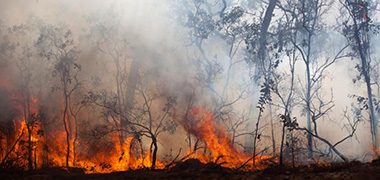
This role has a moderate level of AI exposure. AI can enhance efficiency for some tasks, but this job still relies on human skills and decision-making.
Explore all careersAn Oceanographer studies the ocean's properties and processes, conducting research to advance marine knowledge and promote conservation efforts.
Get qualified to work as an Oceanographer with a course recognised across Australia. Speak to a training provider to learn more.





Browse occupations related to Oceanographer



If you are interested in pursuing a career as an Oceanographer, Brisbane offers a range of reputable Oceanographer courses in Brisbane that cater to experienced learners. From Bachelor of Science degrees in various scientific fields to specialist Certificate IV qualifications, the educational landscape is rich and diverse. The city is home to several renowned training providers, including Griffith University, which offers a comprehensive Bachelor of Science (Marine Biology). This course is an excellent choice for those looking to specialise in the conservation and study of marine ecosystems.
Another prime option is the Bachelor of Science (Earth Science), provided by QUT. This degree will equip you with a detailed understanding of geological processes, essential for any aspiring Oceanographer. The course’s focus on Earth systems science is invaluable for addressing the pressing environmental challenges the world faces today.
In addition to higher education pathways, Brisbane also offers vocational training such as the Certificate IV in Sustainable Operations MSS40122. This qualification emphasises sustainability practices and is offered by various RTOs in the area. Completing this course can significantly enhance your employability in the oceanographic field, as sustainability continues to be a critical focus in environmental science.
For those interested in broader ecological perspectives, consider enrolling in the Bachelor of Science (Environmental Science) or the Bachelor of Science (Geographical Science). Both programmes aim to deepen your understanding of the interactions between human activities and natural systems, an essential knowledge base for an Oceanographer. The Bachelor of Science (Ecology and Conservation Biology) is another popular choice, focusing on the conservation of marine and terrestrial ecosystems.
Brisbane’s educational institutions are committed to producing skilled professionals ready to tackle the challenges of oceanography. With a selection of Oceanographer courses in Brisbane, potential students have numerous opportunities to gain specialized knowledge and skills. Engage with leading providers like UQ and others to find the right fit for your aspirations in the exciting field of oceanography.